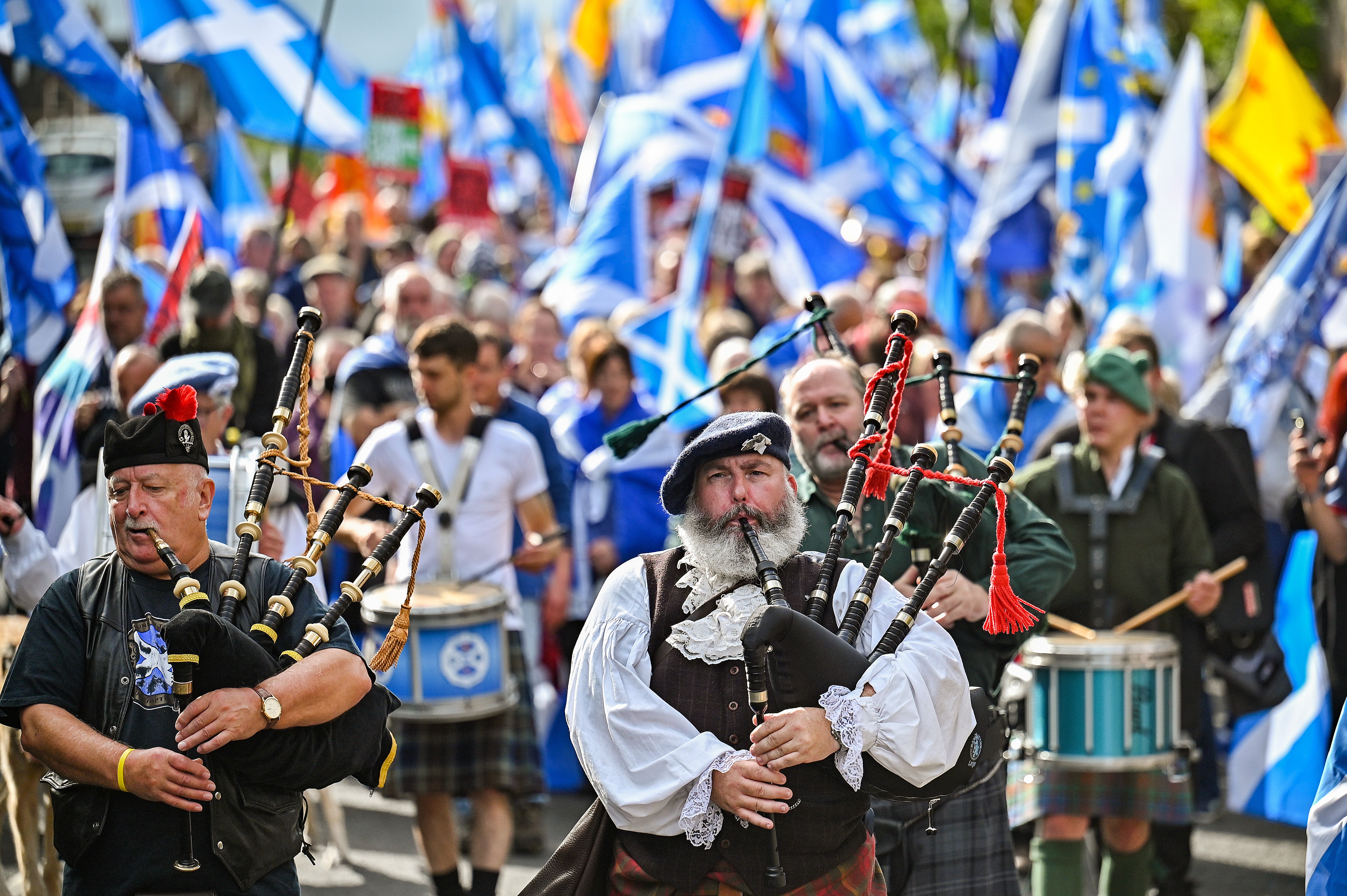Imagining what an independent Scotland would look like is getting harder, not easier
It’s high time the SNP started settling arguments its members will inevitably have with each other, before it starts a second campaign


Your support helps us to tell the story
From reproductive rights to climate change to Big Tech, The Independent is on the ground when the story is developing. Whether it's investigating the financials of Elon Musk's pro-Trump PAC or producing our latest documentary, 'The A Word', which shines a light on the American women fighting for reproductive rights, we know how important it is to parse out the facts from the messaging.
At such a critical moment in US history, we need reporters on the ground. Your donation allows us to keep sending journalists to speak to both sides of the story.
The Independent is trusted by Americans across the entire political spectrum. And unlike many other quality news outlets, we choose not to lock Americans out of our reporting and analysis with paywalls. We believe quality journalism should be available to everyone, paid for by those who can afford it.
Your support makes all the difference.Imagine it’s 2032 and Scotland is an independent country. What does a Scottish car number plate look like? What’s the national anthem? What political parties are on the ballot in the Scottish elections? In the great scheme of things, these are trivial questions, and coming up with answers to them is easy. A lot is in question when it comes to Scottish independence, but the salience and resilience of Scotland’s national identity is not in doubt.
Along with the deep offence of Brexit, and the SNP rebranding triumph overseen by Nicola Sturgeon, it’s this clarity that has kept the independence cause in rude health since it was defeated by a chunky margin eight years ago. It isn’t unusual to hear people in Scotland – especially younger people – describe independence as an inevitability. Look at Boris, look at Europe, look at the state of the union writ large; who wouldn’t vote for it? Well, according to the polling, many if not most people.
But if the nationalist side think they can sell the waverers what they’re peddling, they need to define what independence means.
The SNP has had plenty of time to nail this down. To be clear, the Scottish government and the broader independence movement are both well stocked with smart people who have thought seriously about the post-independence future of Scottish defence, finances and more. And yet – eight years after a referendum result that most people remember as much narrower than it actually was – there is little to reassure the electorate that the people pitching independence know what they’re offering.
Look at the SNP’s Westminster leader Ian Blackford, who last month made a stunningly inept fumble on pensions, declaring first that they’d be paid out by what remained of the UK before backtracking and saying the precise opposite.
There’s nothing unusual about an MP getting a policy wrong when speaking on the hoof, and any row over the future of national insurance disbursements is hardly likely to swing the referendum all by itself, but this incident was still deeply telling. The same goes for Blackford’s recent confirmation that the Queen would remain Scotland’s head of state. A confident enough answer on its face, it pulls the same trick: trying to draw a line under a discussion that will only begin in earnest after a vote in favour of leaving the UK.
Like Sturgeon – who expertly navigated her way through last year’s election debates while saying little about what her, and her party’s, very raison d’etre would actually entail in practice – Blackford has been in and around the independence cause for most of his professional adult life. And like Sturgeon, when he is pressed on the critical, glaring questions on pensions, currency or defence that have loomed over this issue since inception, he stills sounds like he’s grappling with them for the first time.
It is of course the nationalists’ prerogative, especially since they’re in government, to kick that can, and many others like it, as far down the road as possible. The Sturgeonian model of progressive nationalism is distinguished by its cultivated air of level-headedness. But its effect on this particular debate is remorselessly controlling, keeping the Overton window around independence as narrow as possible and constraining the debate within “sensible” boundaries.
Set alongside the mismanagement, hypocrisy and imperialistic bumblings of Boris Johnson, this style of politics is sensible and decent almost by default. But as Blackford’s recent lurching around testifies, mainstream nationalist debate has been carefully manicured to bonsai levels. In the context of a referendum campaign that will inevitably be driven by gut feelings, this will not provide enough nourishment.
Whoever’s leading the official charge will have two main options: impose ruthless top-down message control and disown everyone taking another line, or embrace the hand-waving agnosticism of the sunnier Brexiteers whose fantasies of life outside Europe have turned out to be so pitifully thin. The prospect of being compared unfavourably to the Vote Leave campaign would make any half-sensible nationalist spit with rage. But unless the independence side commits firmly to something besides anti-Westminster grievance and vague social-democratic aspirations, the parallels could become all too clear.
Come the referendum, the nationalists will need to resoundingly win the argument, not just stir up as much animosity towards the status quo as possible. It’s high time the SNP started settling arguments its members will inevitably have with each other, before it starts a second campaign.
To keep up to speed with all the latest opinions and comment sign up to our free weekly Voices newsletter by clicking here
Should the SNP’s independence pitch, whatever it is, be treated as a formal, actionable proposal, or just a blue-sky-thinking, post-it-note brainstorming session? Who should pay for all this, and what if they refuse? If and when Scotland joins the EU, what relationship will it have with its only land neighbour, which has opted out of freedom of movement? These aren’t yes or no questions, and any given answer is always going to put some nationalist noses out of joint.
Then there’s the ugly reality of fighting the referendum itself. Who will “own” the independence campaign, and if it’s not the first minister, how will they be chosen? What degree of belligerence, bigotry and general bad behaviour is acceptable in pursuit of the cause? And, on a deeply uncomfortable point that will inevitably come up whether the SNP like it or not: who is allowed to call themselves Scottish, and who’s allowed to tell them they’re wrong?
With Scotland now taken out of the EU against its will, no sign of anything like a unionist movement, and Johnson maddeningly still ensconced in Downing Street, it’s easy to squint at the still-hypothetical second referendum – particularly from the other side of the border – and think the outcome looks inevitable.
But in politics, that sort of wilfully cultivated inevitability has a way of blowing up in your face.
Join our commenting forum
Join thought-provoking conversations, follow other Independent readers and see their replies
Comments